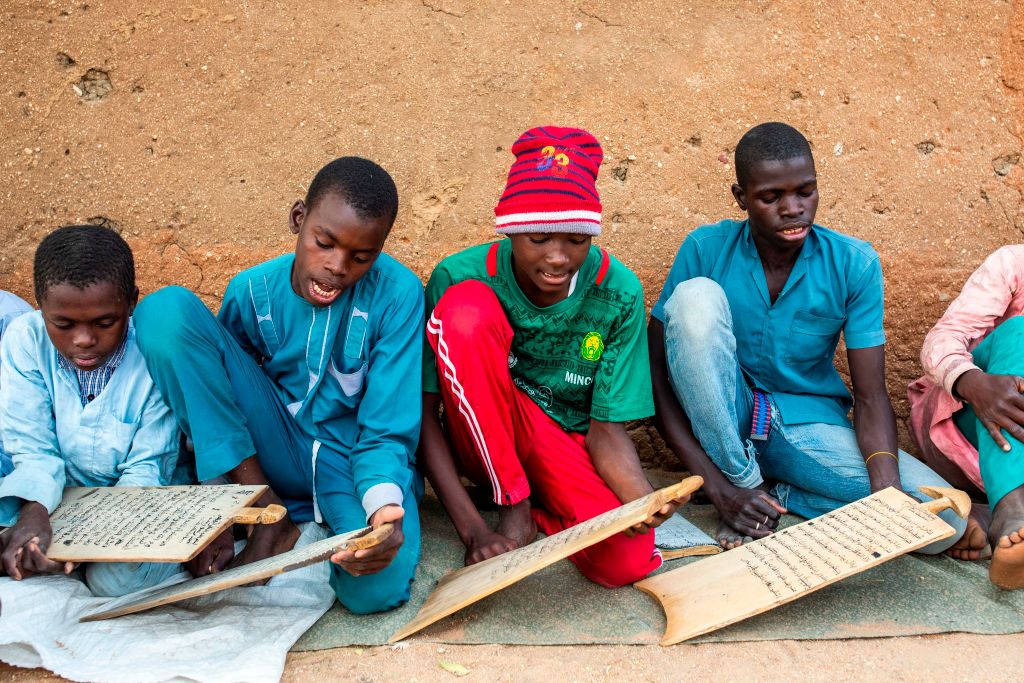Lake Chad Terror Groups Coercing Children to Join
ADF STAFF
Boko Haram has destroyed more than 5,000 classrooms in northeast Nigeria since launching its insurgency in 2009.
It’s one part of an overarching strategy to force children to join extremist terror groups in the Lake Chad Basin region.
Research published by the Managing Exits from Armed Conflict (MEAC) project in December 2022 examined the tactics, practices and conditions that have resulted in the recruitment of thousands of children.
“Mass abductions, attacks on schools, forced marriage and use of child soldiers highlight the numerous grave violations that have been committed against children by Boko Haram,” the report stated.
“In the following decade [after the insurgency began], UNICEF reported that an estimated 8,000 children had been recruited by Boko Haram, although true figures are likely to be higher.”
The independent think tank United Nations University Centre for Policy Research conducted the MEAC project. In 2023, the project will continue under the U.N. Institute for Disarmament Research.
Since Boko Haram originally formed in and focused on northeast Nigeria, the armed group eventually spread through the porous borderlands of the Lake Chad Basin into Cameroon, Chad and Niger.
More recently, the group splintered into two factions: Jama’tu Ahlis Sunna Lidda’awati wal-Jihad (JAS) and the Islamic State West Africa Province (ISWAP).
Malik Samuel, a researcher with the South Africa-based Institute of Security Studies (ISS), said the use of children in combat, the starving of children to death, and the enslavement of girls were among the reasons for ISWAP to break away from Boko Haram.
“One would expect ISWAP to act differently,” Samuel wrote for ISS in 2022, “but recent losses of fighters in battle, clashes with JAS, and members’ desertion may have compelled it to rethink its stance on child soldiers.”
ISS reported about 50 training camps for children on the Lake Chad islands, with young people from Cameroon, Chad, Niger and Nigeria. Within JAS and ISWAP, children are used as fighters, servants, suicide bombers, messengers and for marriage.
While recruitment of children is a clear sign of both groups’ desperation and radical ideology, their tactics have been refined through the years.
MEAC conducted thousands of surveys with former members of JAS and ISWAP from May 2021 to June 2022.
The December 2022 report focused on ex-militants who were under 18 when they were recruited. Interviews showed that economic needs and community factors were the primary reasons for joining.
Economic factors
Roughly one-third of Nigerian children participate in some form of labor. The country also is home to 20% of the world’s out-of-school children, which underscores how terror groups destroy schools to make children more vulnerable.
The MEAC study showed that in Cameroon, Chad, Niger and Nigeria, 34% of children who ended up in Boko Haram had received some formal education compared to 53% of children who were never associated.
Boys in the Lake Chad region who dealt with food insecurity were 40% more likely to join.
“Boko Haram promised us that we will get materialistic things like motorcycles, bicycles, money and livestock,” said one boy who was 16 at the time of recruitment. “These lured us into the group, but we never received any of these promises.”
Another boy said he was 13 when Boko Haram paid him 300,000 naira or $660 to join.
“When children struggle to afford basic necessities and have no other access to income, enlisting in an armed group may appear to be their best option for survival,” the report said.
Community factors
Political influence, isolation and the lack of a sense of belonging often increase the vulnerability of children to violent extremist organizations. Some respondents cited encouragement by religious teachers and leaders as a key to their recruitment.
Parental and community support systems protect children and promote resilience to violent extremism.
The MEAC study showed that Nigerian children “who had someone who listened to them, gave them advice or helped them to make future plans” were 19% to 21% less likely to join Boko Haram or one of its factions.
In some cases, whole families were recruited.
Community occupation by Boko Haram was an obvious factor, as 47% of the MEAC study respondents across the Lake Chad Basin reported.
“When our village was attacked by Boko Haram, most people fled to Maiduguri and only a few of us stayed behind,” said a Nigerian survey participant who was 17 at the time of his recruitment.
“One day they gathered all of us that did not flee and asked us to join them or die at their hands. I joined in fear of death.”


Comments are closed.